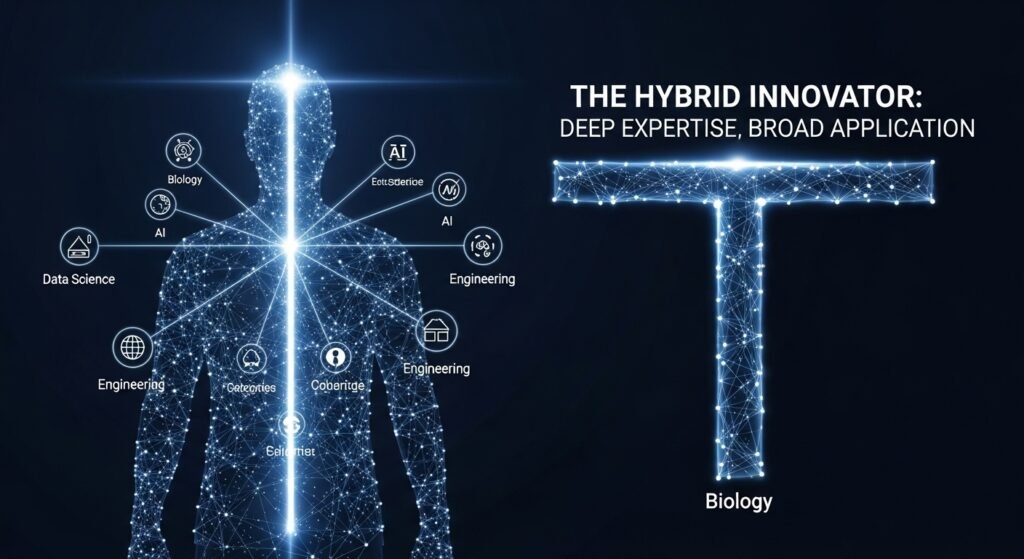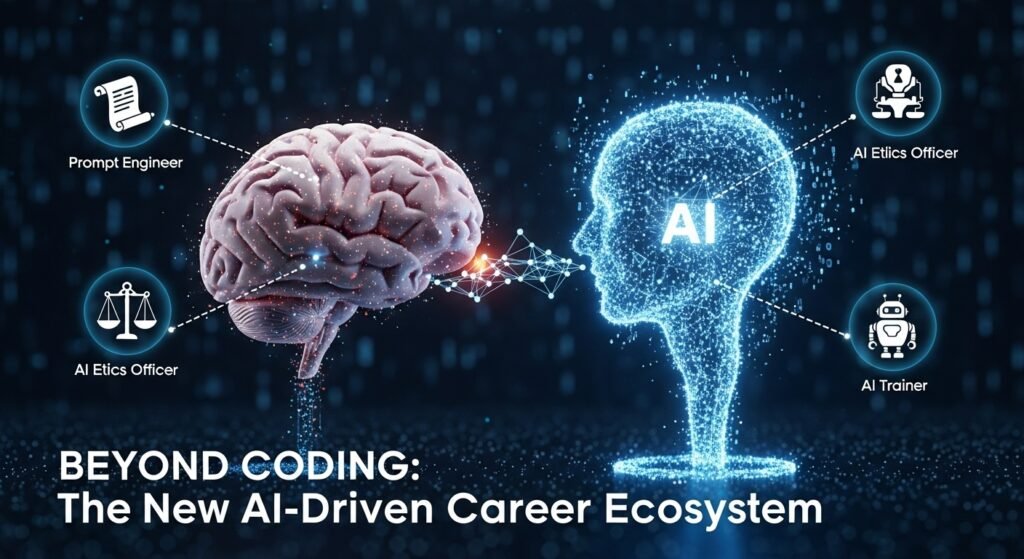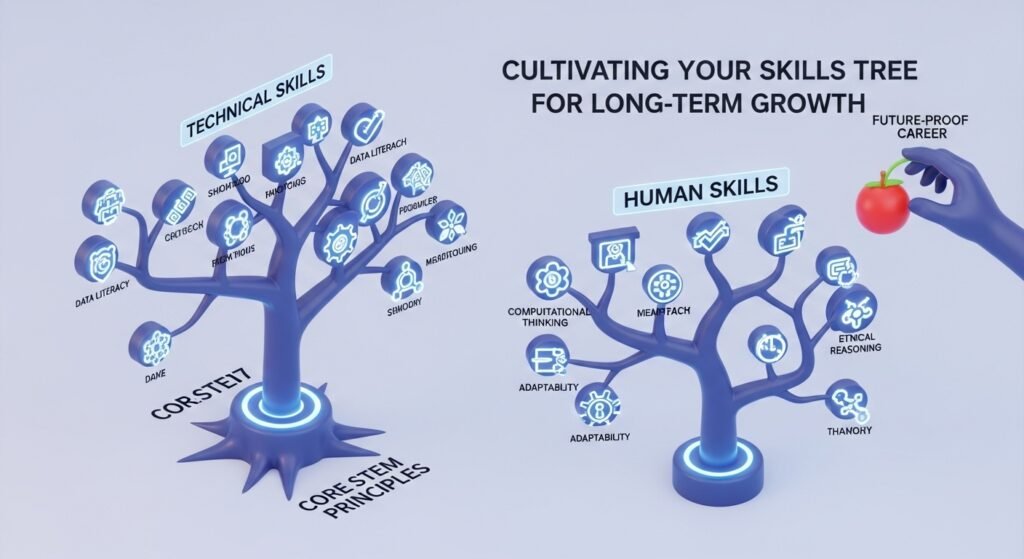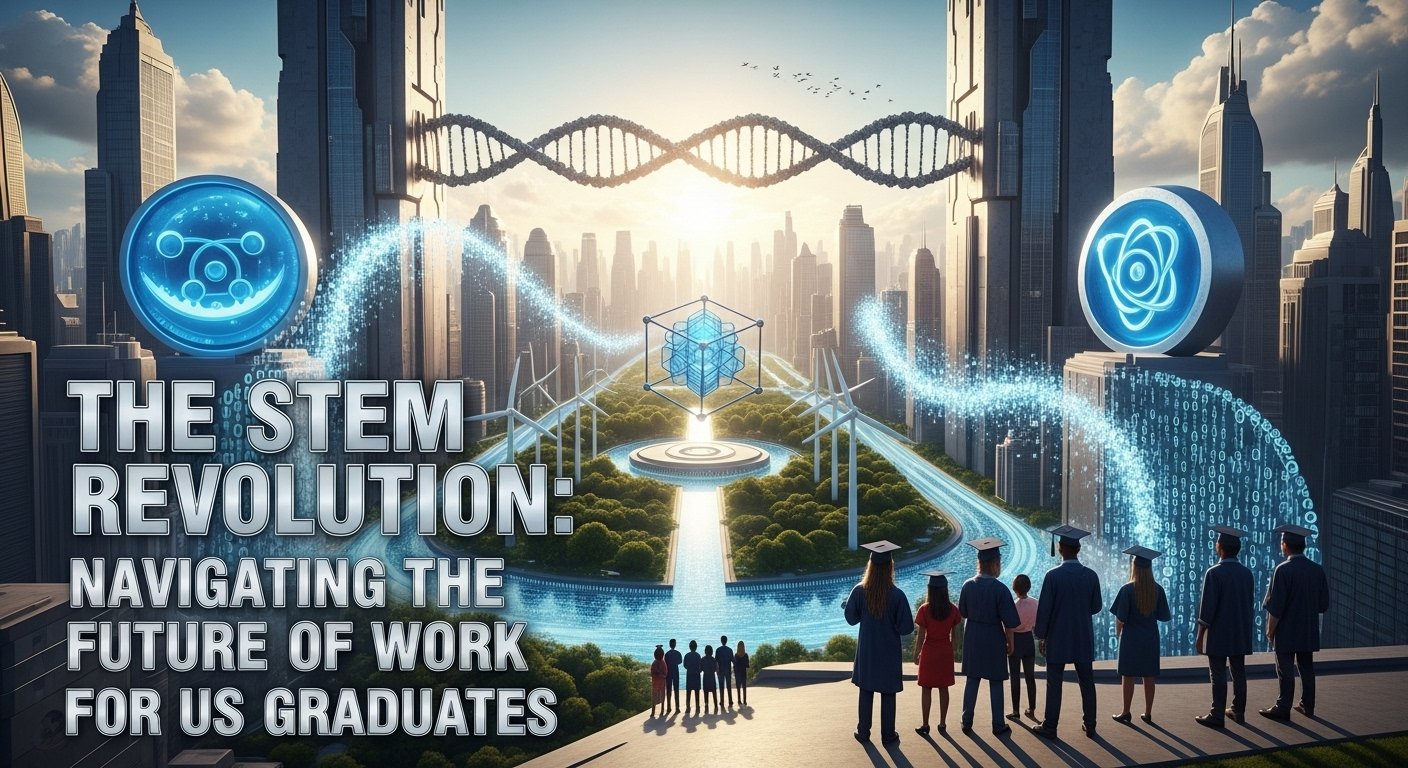Introduction: The Changing Landscape of STEM Careers
When I graduated with my computer science degree in 2010, the career paths seemed straightforward: software engineer at a tech company, IT specialist at a corporation, or maybe research scientist at a university. Today’s graduates face a radically different landscape—one where the future of work in STEM is being rewritten by artificial intelligence, remote collaboration, and emerging technologies that didn’t exist a decade ago.
The future of work in science, technology, engineering, and mathematics is both exciting and unpredictable. For current students and recent graduates, understanding these shifts isn’t just helpful—it’s essential for building a successful, future-proof career. This article will explore what the future of work truly means for STEM professionals, which fields offer the greatest potential, and how to prepare for opportunities that might not even have names yet.

What Does “Future of Work” Really Mean for STEM Graduates?
The phrase “future of work” often gets thrown around in vague, futuristic terms. But for STEM graduates, it represents concrete changes:
- Hybrid roles that combine multiple disciplines (like bioinformatics or computational social science)
- Skills-based hiring where degrees matter less than demonstrable capabilities
- Remote and global opportunities that break geographical limitations
- Continuous learning requirements as technologies evolve at accelerating rates
- Purpose-driven work with increased focus on sustainability and social impact
According to the World Economic Forum’s Future of Jobs Report, 50% of all employees will need reskilling by 2025 as technology adoption accelerates. For STEM graduates, this means your education is just the beginning of a lifelong learning journey.
Best Remote Internship Programs in 2025
The Most Promising STEM Fields for the Future of Work

1. Artificial Intelligence and Machine Learning
The AI revolution is creating entirely new career paths while transforming existing ones. Beyond traditional roles like machine learning engineer, we’re seeing emerging positions like:
- AI ethics officer: Ensuring responsible AI development and deployment
- Prompt engineer: Specializing in communicating effectively with AI systems
- AI trainer: Teaching AI systems how to perform specific tasks
- Automation specialist: Implementing AI solutions across industries
The Bureau of Labor Statistics projects computer and information research scientist jobs (which include AI specialists) will grow 21% from 2021 to 2031—much faster than average.
2. Biotechnology and Bioinformatics
The convergence of biology and technology is creating unprecedented opportunities in the future of work landscape:
- Personalized medicine specialists developing treatments based on individual genetics
- Bioinformatics analysts working at the intersection of biology and data science
- Synthetic biology engineers designing biological systems for specific purposes
- Digital health developers creating apps and devices for healthcare monitoring
The COVID-19 pandemic accelerated investment in biotech, with the global biotechnology market expected to reach $2.44 trillion by 2028.
Best YouTube Channels for Learning
3. Renewable Energy and Environmental Engineering
As climate change concerns drive policy and investment, clean energy represents one of the fastest-growing STEM sectors:
- Solar energy engineers designing and improving photovoltaic systems
- Battery technology specialists working on energy storage solutions
- Carbon capture researchers developing technologies to reduce atmospheric CO2
- Sustainability analysts helping organizations reduce environmental impact
The Inflation Reduction Act alone includes $370 billion in climate and energy investments, ensuring strong job growth in these fields.
4. Cybersecurity and Digital Privacy
As our lives move increasingly online, protecting digital infrastructure becomes more critical:
- Cloud security specialists securing distributed computing environments
- IoT security experts protecting connected devices from hackers
- Privacy engineers building data protection into products from the ground up
- Digital forensics analysts investigating cybercrimes and security breaches
With cyber attacks increasing in frequency and sophistication, the cybersecurity field is expected to have 3.5 million unfilled jobs globally by 2025.
Top 10 Free Online English Courses with Certificates in 2025

5. Quantum Computing
Though still emerging, quantum computing represents the next frontier in computational power:
- Quantum algorithm developers creating applications for quantum computers
- Quantum hardware engineers building and maintaining quantum systems
- Cryptography specialists developing quantum-resistant security protocols
- Materials scientists discovering substances with quantum applications
Major tech companies and governments are investing billions in quantum research, making this a promising long-term career path.

Essential Skills for the Future of Work in STEM
Technical knowledge alone isn’t enough for the future of work. The most successful STEM professionals will combine specialized expertise with broader capabilities:
Technical Skills in High Demand
| Skill Category | Specific Skills | Why It Matters |
|---|---|---|
| Data Literacy | Statistical analysis, data visualization, SQL, Python (Pandas, NumPy) | Decision-making is increasingly data-driven across all industries |
| Computational Thinking | Algorithms, systems thinking, pattern recognition | Essential for solving complex problems efficiently |
| Digital Fabrication | 3D modeling, CAD, prototyping, CNC programming | Bridges digital and physical creation |
| AI Collaboration | Prompt engineering, AI tool proficiency, critical evaluation of AI outputs | Working effectively with AI systems is becoming essential |
Human Skills That Complement Technology
- Adaptability quotient (AQ): The ability to learn and adjust to new situations
- Cross-cultural competency: Working effectively in global, diverse teams
- Complex communication: Explaining technical concepts to non-technical audiences
- Ethical reasoning: Navigating the moral implications of technological development
- Creative problem-finding: Identifying problems worth solving
A study by LinkedIn found that 57% of senior leaders value soft skills more than hard skills, highlighting the importance of these human capabilities.
Top 10 Free Online English Courses with Certificates in 2025
How the Future of Work Changes Traditional Career Paths
The linear career ladder is becoming obsolete in the future of work landscape. Instead, STEM professionals are increasingly following:
Portfolio Careers
Rather than advancing vertically in one organization, professionals build a diverse portfolio of projects, roles, and clients. This might include:
- A full-time position at a established company
- Consulting projects for startups
- Teaching or mentoring opportunities
- Personal research or open-source contributions
Cyclical Learning Patterns
The traditional “learn then work” model is being replaced by continuous cycles of:
- Identifying skill gaps based on emerging opportunities
- Intensive learning through courses, certifications, or projects
- Application in professional contexts
- Evaluation and identification of new gaps
Geographic Flexibility
Remote work capabilities mean STEM professionals are no longer limited to tech hubs like Silicon Valley. This creates opportunities for:
- Working for coastal companies while living in lower-cost areas
- Digital nomadism while traveling
- Global employment without relocation
Top 10 Free Online English Courses with Certificates in 2025
Preparing for the Future of Work: A Practical Guide for Students
During Your Degree Program
- Embrace interdisciplinary learning
- Take courses outside your major (business, ethics, design)
- Pursue double majors or minors in complementary fields
- Participate in cross-disciplinary projects and clubs
- Build a project portfolio
- Document class projects with professional-quality documentation
- Contribute to open-source projects
- Develop personal projects that solve real problems
- Gain diverse experience
- Seek internships in different industries and company sizes
- Participate in undergraduate research opportunities
- Consider cooperative education programs that alternate study and work
As You Enter the Job Market
- Focus on skills, not just job titles
- Identify emerging skills needed in your target industry
- Develop T-shaped expertise (deep in one area, broad across many)
- Showcase capabilities through portfolios and certifications
- Build your professional network
- Connect with professionals in emerging fields
- Participate in industry conferences and meetups
- Maintain relationships with professors and classmates
- Develop your personal brand
- Share your learning journey online
- Create content around your specialty area
- contribute to relevant online communities
Top 10 Free Online English Courses with Certificates in 2025
The Role of Advanced Degrees in the Future of Work
The value of advanced degrees is evolving in the future of work landscape:
When Advanced Degrees Make Sense
- Research-intensive roles requiring deep specialization
- Academic and some government positions
- Fields where credentials are legally required (certain engineering specialties)
- Career changers needing foundational knowledge in a new field
When Alternatives Might Be Better
- Rapidly evolving fields where knowledge quickly becomes outdated
- Industries that value portfolio and experience over credentials
- Roles where specialized certifications demonstrate specific capabilities
- Entrepreneurs building their own companies
Microcredentials, nanodegrees, and specialized certifications are increasingly competing with traditional degrees for demonstrating competency.
Industries Transformed by STEM Innovation
The future of work isn’t just happening within tech companies—STEM professionals are driving transformation across sectors:
Healthcare
- Telemedicine and digital health platforms
- Wearable medical devices and remote monitoring
- AI-assisted diagnosis and treatment planning
- Genomic medicine and personalized treatments
Manufacturing
- Smart factories with IoT connectivity
- Additive manufacturing (3D printing)
- Robotics and automation
- Predictive maintenance using AI
Agriculture
- Precision agriculture using drones and sensors
- Automated harvesting systems
- Genetic crop engineering
- Vertical farming and controlled environment agriculture
Finance
- Algorithmic trading systems
- Blockchain and cryptocurrency technologies
- Fraud detection using machine learning
- Robo-advisors and automated financial planning
Challenges and Considerations for the Future of Work
While the future of work presents incredible opportunities, it also brings challenges that STEM professionals must navigate:
Ethical Implications
- Addressing bias in algorithms and AI systems
- Considering environmental impact of technological solutions
- Protecting privacy in increasingly connected systems
- Ensuring equitable access to technological advancements
Work-Life Integration
- Setting boundaries in always-connected remote work environments
- Avoiding burnout in fast-moving fields
- Maintaining human connection in distributed teams
- Continuous learning without overwhelming yourself
Economic Considerations
- Navigating salary transparency and negotiation in global markets
- Understanding equity and compensation in startup environments
- Planning for retirement in non-traditional career paths
- Managing variable income in project-based work
Top 10 Free Online English Courses with Certificates in 2025
Conclusion: Building a Future-Proof STEM Career
The future of work in STEM fields is not a distant concept—it’s unfolding right now, creating both disruption and opportunity. For current students and recent graduates, success will come not from predicting the future perfectly, but from developing the adaptability to thrive amid constant change.
The most successful STEM professionals will be those who:
- Embrace continuous learning as a way of life
- Develop both technical depth and interdisciplinary breadth
- Maintain strong ethical foundations in their work
- Build diverse professional networks and communities
- Stay curious about emerging technologies and their applications
The future of work belongs to those who can bridge divides—between technical and human skills, between specialized knowledge and broad understanding, between existing technologies and emerging possibilities. By developing these capabilities, today’s STEM graduates can not just adapt to the future of work, but help shape it.




Pingback: Homeschooling Online Learning Trends Pros and Cons - PaidScripts -Tech Education Hub: Courses & Student Resources